Features
2025 Budget: Challenges, hopes and concerns
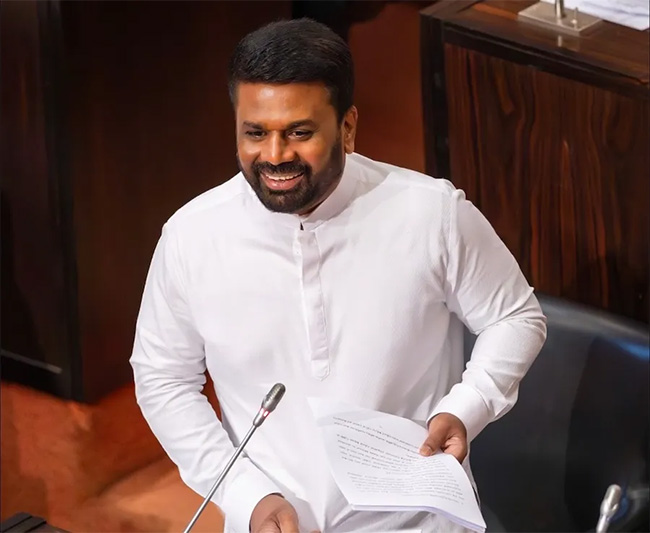
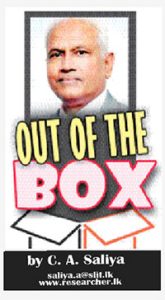 Sri Lanka’s recent government budget has sparked both hope and concern. While some see it as a positive step toward improving the country’s economy, others worry about whether the government’s proposals can be successfully implemented. This analysis explores the budget’s approach and what it could mean for the country’s financial future.
Sri Lanka’s recent government budget has sparked both hope and concern. While some see it as a positive step toward improving the country’s economy, others worry about whether the government’s proposals can be successfully implemented. This analysis explores the budget’s approach and what it could mean for the country’s financial future.
Credit Rating Improvement and What It Means
Fitch Ratings recently upgraded Sri Lanka’s credit rating, moving it from a risky “Restricted Default” (RD) to a “CCC+” rating. This shows that the country’s financial situation is improving, though it still faces a high risk of default. The government aims to increase its revenue, especially through trade taxes and income tax, but experts warn that the success of these plans is uncertain, particularly when it comes to lifting restrictions on imports.
Economic Democracy and Market Regulation
The government claims that this budget is based on the idea of “economic democracy,” aiming to balance market forces with government control. While it promises fairer distribution of wealth, critics argue that it still relies on market-driven policies that may not bring the desired changes. The budget seems to follow similar strategies to past administrations, despite the government’s claim of pursuing a new direction.
The current government, led by a Marxist-influenced party, has shifted its approach by aligning with global economic institutions like the International Monetary Fund (IMF). This represents a departure from its previous, more radical stance. The government’s vision focuses on rural development, support for small businesses, and an export-driven economy, continuing strategies from previous administrations rather than implementing drastic changes.
Stability and Continuity in Policy
One of the more positive aspects of the budget is its consistency with the fiscal policies of the past government. Sri Lanka’s economy has suffered from sudden policy changes in the past, often triggered by political transitions. By maintaining a steady course, the current government seeks to ensure stability in the recovery process, despite criticisms from political opponents.
Sri Lanka continues to face significant financial challenges, including a large budget deficit. The government’s spending in 2025 is expected to exceed its revenue by about LKR 2.2 trillion, leading to a deficit of around 6.7% of GDP. To cover this gap, the government plans to borrow both locally and internationally. However, debt repayment remains a major concern, with billions needed to settle existing obligations.
Tax Revenue and Public Spending Issues
Sri Lanka’s tax collection remains critically low, which worsens the country’s financial troubles. Tax evasion, exemptions, and inefficient administration make it hard to collect sufficient revenue. The government has raised VAT to 18% to boost income, but this could increase inflation, further harming families’ ability to afford basic goods. Additionally, corruption in public institutions continues to drain state resources, preventing effective use of funds for national development.
The Auditor General’s Department recently uncovered financial irregularities in several ministries, reinforcing concerns over systemic corruption.
Sectoral Allocations, Budget Inequities and Falures
Despite claims of prioritizing social welfare, the government’s budget allocation for key sectors remains insufficient. For example, while the government allocated LKR 500 million to improve 379 childcare centers nationwide, this amount pales in comparison to regional standards. In neighboring Bangladesh, the government spends around USD 60 per child annually, while Sri Lanka spends less than USD 25. It’s unclear whether this allocation represents an increase in funding or just a reshuffling of existing resources.
One of the biggest criticisms of the budget is its failure to address the high cost of essential goods, going against promises made during the election. Prices for basic items like rice and coconut are still high, due to supply chain issues, rising fuel costs, and tax policies. The absence of targeted subsidies or price controls has led to growing public dissatisfaction.
Public sector salary adjustments are also a point of contention. The government plans to introduce salary increases in three phases, with the full benefits expected by 2027. However, much of this increase was already granted in previous years through allowances, meaning the adjustment is more about restructuring existing funds than providing real pay increases. This slow approach raises concerns about whether employees’ purchasing power will improve, especially with inflation still a pressing issue.
The government has also urged the private sector to raise wages, but past experiences suggest that private companies often resist such requests. Without formal agreements or laws to enforce wage hikes, there is uncertainty over whether employees will see real wage growth that matches the rising cost of living.
Neglecting Vulnerable Workers and Obstinate Behaviour
Another group left out of the budget’s plans is casual and contract workers, who were expecting improvements in job security and wages, particularly those earning below LKR 1,800 per day. Despite promises made during the election, these workers have not seen any significant changes, which raises doubts about the government’s commitment to improving labor rights and income equality.
The government’s handling of private sector wage increases has also been criticized for a lack of transparency. In a televised discussion, A government representative became visibly agitated when questioned about the date of the agreement with employers, displaying obstinate behavior and refusing to answer the opposition MP’s inquiry.
Review of the Banking Sector’s Role in Govt. Revenue and Economic Growth
The banking sector helps generate national revenue through taxes such as corporate income tax, value-added tax (VAT), and financial transaction levies. However, the claim that it contributed 10% to government revenue in 2024 needs to be understood in context. Past figures have shown fluctuations in financial sector taxes, influenced by economic conditions and fiscal policies. The government’s growing reliance on the banking sector for tax revenue could signal financial stress, and this situation warrants further analysis to understand its long-term sustainability.
While the Sri Lanka Bankers Association (SLBA) emphasizes banks’ support for implementing the government’s budget proposals, their ability to do so effectively depends on broader economic conditions, regulations, and financial stability. Sri Lanka has faced persistent economic issues like high public debt and inflation, which could hamper the ability of banks to help implement fiscal policies effectively. The real impact of the banking sector in driving economic growth remains uncertain, especially given factors like currency instability and a lack of foreign investment.
Digitization and Financial Transparency
The proposal to introduce Point-of-Sale (POS) machines at VAT-registered businesses aligns with global trends in digital financial integration. This move is expected to improve transparency, reduce tax evasion, and increase banking efficiency. Research has shown that digital payments can boost financial inclusion and reduce informal economic activities. However, Sri Lanka faces challenges such as limited digital infrastructure, cybersecurity concerns, and resistance from businesses that still prefer cash transactions.
More digital services could strengthen anti-money laundering (AML) controls, improve transaction monitoring, and reduce cyber threats. However, shifting to a fully digital banking system requires substantial investments in technology, regulatory alignment, and digital literacy among consumers.
Support for SMEs and Development Banking Initiatives
The creation of a Credit Guarantee Institute for SMEs is a significant step. Research shows that credit guarantees can reduce lending risks and improve SME access to financing. However, past state-managed financial programs in Sri Lanka have been inefficient, often involving politicized lending practices.
For these new initiatives to succeed, they will need transparent governance, careful credit risk management, and strong regulations….
Conclusion
Sri Lanka’s banking sector is crucial for economic stability and revenue generation, but the increasing fiscal demands and the push for digital transformation present both significant opportunities and risks. Policymakers need to avoid over-taxation that could stifle credit expansion and investment while addressing digital finance challenges like cybersecurity and infrastructure gaps. The 2025 budget underscores the nation’s vulnerable fiscal situation, where efforts for economic stabilization are hampered by public debt, corruption, and welfare constraints. Achieving sustainability requires comprehensive tax reforms, better public expenditure management, and stronger anti-corruption measures. Without these reforms, Sri Lanka faces prolonged economic hardship, rising inequalities, and diminishing trust in governance. The budget also reflects a blend of ideological transformation and economic pragmatism, with policies largely aligning with past approaches. Fitch Ratings’ cautious optimism signals the potential for recovery, contingent on successful policy implementation. Ultimately, policy continuity is seen as Sri Lanka’s best bet for navigating fiscal uncertainty and achieving economic stability.
(The writer, a senior Chartered Accountant and professional banker, is Professor at SLIIT University, Malabe. He is also the author of the “Doing Social Research and Publishing Results”, a Springer publication (Singapore), and “Samaja Gaveshakaya (in Sinhala). The views and opinions expressed in this article are solely those of the author and do not necessarily reflect the official policy or position of the institution he works for. He can be contacted at saliya.a@slit.lk and www.researcher.com)
Features
Rethinking cities – Sustainable urban innovation

by Ifham Nizam
Dr. Nadeesha Chandrasena is an urban innovator reshaping the landscape of sustainable development. With a background that spans journalism, banking, and military engineering, she brings a unique perspective to urban planning and environmental resilience.
Her work integrates cutting-edge technology with human-centered design, ensuring that cities of the future are not only livable but also adaptive to climate change and rapid urbanisation.
In this interview with The Island, Dr. Chandrasena shares insights into her journey—from her early days in journalism to pioneering the Smart Drain Initiative, a groundbreaking infrastructure project addressing urban drainage inefficiencies. She discusses the critical role of community engagement, the challenges of balancing innovation with political realities, and the urgent need for sustainable urban solutions in Sri Lanka and beyond.
Her story is one of relentless curiosity, problem-solving, and a deep commitment to building better cities. As she puts it, “Urbanisation is inevitable; our challenge is to shape it in ways that are inclusive, sustainable, and forward-thinking.”
Urbanisation is one of the defining challenges of the 21st century, and few understand its complexities better than Dr. Chandrasena. A trailblazer in sustainable urban development, she has dedicated her career to bridging the gap between technological innovation and environmental sustainability. Through her work, she emphasises a crucial message: cities must evolve—not just grow.
From Journalism to Urban Innovation
Dr. Chandrasena’s career path is anything but conventional. Beginning as a journalist, she honed her skills in field research and community engagement, which later became instrumental in her work as an urban planner. “Journalism taught me how to listen to people’s stories and understand the realities on the ground,” she explains. This background helped her develop urban solutions rooted in real-world insights rather than abstract theories.
Her transition into urban innovation was fueled by a deep-seated passion for environmental resilience. After a stint in banking and serving in the Sri Lanka Army Corps of Engineers, she pursued town and country planning, ultimately integrating her diverse experiences to address urban challenges holistically.
The Smart Drain Initiative: A Game Changer in Urban Infrastructure
One of Dr. Chandrasena’s most groundbreaking contributions is the Smart Drain Initiative—a next-generation urban drainage system designed to combat flooding and waste accumulation. Implemented in areas like Balapola and Ambalangoda, this technology incorporates IoT-based monitoring, predictive maintenance, and automated waste filtration to enhance resilience against climate change.
“Storm drains are often neglected, but they are the foundation of a city’s flood resilience,” she says. By modernising drainage infrastructure, her initiative is setting a precedent for cities worldwide to rethink their approach to urban water management.
Livability as the Core Urban Challenge
For Dr. Chandrasena, urban planning is not just about infrastructure—it’s about people. She identifies livability as the root problem that must be addressed in city planning. “Congestion, pollution, lack of green spaces, and inefficient waste management are all symptoms of poor urban planning,” she explains. Her work focuses on designing cities that prioritise well-being, accessibility, and sustainability.
Sri Lanka, in particular, faces unique challenges due to rapid urbanisation. With cities like Colombo struggling to accommodate a massive influx of commuters, Dr. Chandrasena advocates for affordable housing solutions near economic hubs and improvements in public transportation. “A city’s economic success should not come at the cost of its residents’ quality of life,” she insists.
Technology and Community Engagement: The Future of Urban Development
Dr. Chandrasena sees technology as a powerful tool for fostering inclusive urban development. From using social media for community consultations to deploying smart infrastructure, she believes digital solutions can democratise urban planning. “We need to move beyond traditional engagement methods and empower people through accessible technology,” she says.
Her leadership philosophy reflects this inclusive approach. Through initiatives like the MyTurn Internship Platform, she mentors young professionals, encouraging them to take an active role in shaping the future of cities. “Leadership is not about authority—it’s about creating opportunities for collaboration,” she adds.
Global Urban Challenges and the Need for Collaboration
Urban issues are not confined to national borders. Dr. Chandrasena highlights the importance of global partnerships, citing the twin-city concept as a model for knowledge exchange. By pairing cities with similar challenges—such as Galle, Sri Lanka, and Penang, Malaysia—municipalities can co-create solutions that address both local and global urban challenges.
Her work has not gone unnoticed. She recently won Australia’s Good Design Award for Best in Class Engineering Design, a testament to the impact of her innovative approaches.
Call to Action for Sustainable Cities
Dr. Chandrasena’s vision for the future is clear: cities must be designed to be resilient, inclusive, and sustainable. While challenges like climate change and urban congestion persist, she remains optimistic. “There are no perfect cities—just as there are no perfect people. But by striving for practical solutions, we can make cities better for everyone.”
Her journey—from journalist to urban innovator—demonstrates that change begins with a vision and the determination to act on it. As urbanisation accelerates, her work serves as a blueprint for how cities can not only survive but thrive in an ever-evolving world.
Features
Need to appreciate SL’s moderate politics despite govt.’s massive mandate
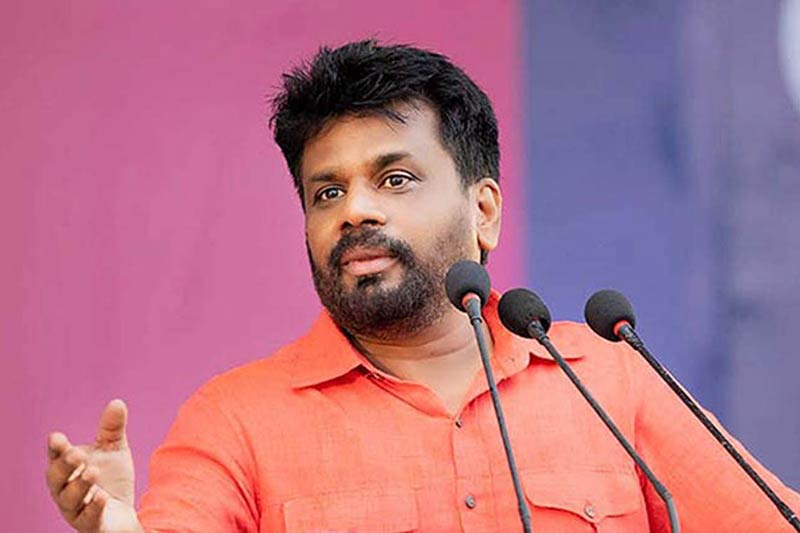
by Jehan Perera
President Donald Trump in the United States is showing how, in a democratic polity, the winner of the people’s mandate can become an unstoppable extreme force. Critics of the NPP government frequently jibe at the government’s economic policy as being a mere continuation of the essential features of the economic policy of former president, Ranil Wickremesinghe. The criticism is that despite the resounding electoral mandates it received, the government is following the IMF prescriptions negotiated by the former president instead of making radical departures from it as promised prior to the elections. The critics themselves do not have alternatives to offer except to assert that during the election campaign the NPP speakers pledged to renegotiate the IMF agreement which they have done only on a very limited basis since coming to power.
There is also another area in which the NPP government is following the example of former President Ranil Wickremesinghe. During his terms of office, both as prime minister and president, Ranil Wickremesinghe ruled with a light touch. He did not utilise the might of the state to intimidate the larger population. During the post-Aragalaya period he did not permit street protests and arrested and detained those who engaged in such protests. At the same time with a minimal use of state power he brought stability to an unstable society. The same rule-with-a-light touch approach holds true of the NPP government that has succeeded the Wickremesinghe government. The difference is that President Anura Kumara Dissanayake has an electoral mandate that President Wickremesinghe did not have in his final stint in power and could use his power to the full like President Trump, but has chosen not to.
At two successive national elections, the NPP obtained the people’s mandate, and at the second one in particular, the parliamentary elections, they won an overwhelming 2/3 majority of seats. With this mandate they could have followed the “shock and awe” tactics that are being seen in the U.S. today under President Donald Trump whose party has won majorities in both the Senate and House of Representatives. The U.S. president has become an unstoppable force and is using his powers to make dramatic changes both within the country and in terms of foreign relations, possibly irreversibly. He wants to make the U.S. as strong, safe and prosperous as possible and with the help of the world’s richest man, Elon Musk, the duo has become seemingly unstoppable in forging ahead at all costs.
EXTREME POWER
The U.S. has rightly been admired in many parts of the world, and especially in democratic countries, for being a model of democratic governance. The concepts of “checks and balances” and “separation of powers” by which one branch of the government restricts the power of the other branches appeared to have reached their highest point in the U.S. But this system does not seem to be working, at least at the present time, due to the popularity of President Trump and his belief in the rightness of his ideas and Elon Musk. The extreme power that can accrue to political leaders who obtain the people’s mandate can best be seen at the present time in the United States. The Trump administration is using the president’s democratic mandate in full measure, though for how long is the question. They have strong popular support within the country, but the problem is they are generating very strong opposition as well, which is dividing the U.S. rather than unifying it.
The challenge for those in the U.S. who think differently, and there are many of them at every level of society, is to find ways to address President Trump’s conviction that he has the right answers to the problems faced by the U.S. which also appears to have convinced the majority of American voters to believe in him. The decisions that President Trump and his team have been making to make the U.S. strong, safe and prosperous include eliminating entire government departments and dismissing employees at the Consumer Financial Protection Bureau (CFPB), Centers for Disease Control and Prevention (CDC) and the Food and Drug Administration (FDA) which were established to protect the more disadvantaged sectors of society. The targets have included USAID which has had consequences for Sri Lanka and many other disadvantaged parts of the world.
Data obtained from the Department of External Resources (ERD) reveal that since 2019, USAID has financed Sri Lankan government projects amounting to Rs. 31 billion. This was done under different presidents and political parties. Projects costing USD 20.4 million were signed during the last year (2019) of the Maithripala Sirisena government. USD 41.9 million was signed during the Gotabaya Rajapaksa government, USD 26 million during the Ranil Wickremesinghe government, and USD 18.1 million so far during the Anura Kumara Dissanayake government. At the time of the funding freeze, there were projects with the Justice Ministry, Finance Ministry, Environment Ministry and the Energy Ministry. This is apart from the support that was being provided to the private sector for business development and to NGOs for social development and good governance work including systems of checks and balances and separation of powers.
MODERATE POLITICS
The challenge for those in Sri Lanka who were beneficiaries of USAID is to find alternative sources of financing for the necessary work they were doing with the USAID funding. Among these was funding in support of improving the legal system, making digital technology available to the court system to improve case management, provision of IT equipment, and training of judges, court staff and members of the Bar Association of Sri Lanka. It also included creating awareness about the importance of government departments delivering their services in an inclusive manner to all citizens requiring their services, and providing opportunities for inter-ethnic business collaboration to strengthen the economy. The government’s NGO Secretariat which has been asked to submit a report on USAID funding needs to find alternative sources of funding for these and give support to those who have lost their USAID funding.
Despite obtaining a mandate that is more impressive at the parliamentary elections than that obtained by President Trump, the government of President Anura Kumara Dissanayake has been more moderate in its efforts to deal with Sri Lanka’s problems, whether in regard to the economy or foreign relations. The NPP government is trying to meet the interests of all sections of society, be they the business community, the impoverished masses, the civil society or the majority and minority ethnic and religious communities. They are trying to balance the needs of the people with the scarce economic resources at their disposal. The NPP government has demanded sacrifice of its own members, in terms of the benefits they receive from their positions, to correspond to the economic hardships that the majority of people face at this time.
The contrast between the governance styles of President Trump in the U.S. and President Dissanayake in Sri Lanka highlights the different paths democratic leaders can take. President Trump is attempting to decisively reshape the U.S. foreign policy, eliminating entire government departments and overwhelming traditional governance structures. The NPP government under President Dissanayake has sought a more balanced, inclusive path by taking steps to address economic challenges and governance issues while maintaining stability. They are being tough where they need to be, such as on the corruption and criminality of the past. They need to be supported as they are showing Sri Lankans and the international community how a government can use its mandate without polarising society and thereby securing the consensus necessary for sustainable change.
Features
Navigating the winds of change: Leadership, ethics & non-compromise – II

by Sasanka Perera
(The writer is on X as @sasmester)
(Keynote address delivered at the first Award Ceremony of the ‘The Bandaranaike Academy for Leadership & Public Policy on 15 February 2025 at Mihilama Medura, BMICH, Colombo)
(Continued from last week)
Ethics
 This compromised sense of leadership is a good point of departure for a brief discussion on ethics, because much of our grievances and hardships are a direct result of our own compromise of ethics. It was Albert Camus who said that “a man without ethics is a wild beast” [set loose] “upon this world.” Indeed, we know this from experience for well over 30 years in the way our toxic political environment has impacted on the way we have lived and worked. In fact, I would venture that we have been marauded by hordes of such two-legged creatures from different political dispensations.
This compromised sense of leadership is a good point of departure for a brief discussion on ethics, because much of our grievances and hardships are a direct result of our own compromise of ethics. It was Albert Camus who said that “a man without ethics is a wild beast” [set loose] “upon this world.” Indeed, we know this from experience for well over 30 years in the way our toxic political environment has impacted on the way we have lived and worked. In fact, I would venture that we have been marauded by hordes of such two-legged creatures from different political dispensations.
How else can you explain the way in which our politicians stayed put within their political groupings publicly pining for their compromised leaders and singing hosannas of themselves when their countrymen and women were suffering extreme pain and anguish, and the country was being pushed towards financial bankruptcy? How do you explain why they did not opt to form different and cleaner political formations and practices even though that might have meant some personal political risks? Why were such risks not taken if their true intent — as often publicly expressed — was in the interest of the nation? What kind of ethics and moral positions would have informed such calculated timidity and such orchestrated selfishness?
Or, is the culprit here the lack of moral and ethical depth of character among these powerful citizens in the first place? Thinking of your course, ‘Executive Credential on Leadership & Public Policy,’ but also momentarily stepping away from it and into the messiness of the real world, how would focus areas such as ‘Ethical Leadership’, ‘Visionary Leadership’ and above all, ‘Moral Leadership’ embedded in this course explain what happened to us since Independence in general, and over the last two decades, in particular?
Will these important and appreciable concepts explain our politics at all? Or, would our politics render these concepts mere figments of imagination? From what universe then would the examples for these concepts in your course ideally come from? Is it even possible to think of ethics in our politics the way our politics have actually transpired?
I do not intend to give you a lecture on ethics. But at the present moment in our country, what concerns me as a citizen is how the notion of ‘ethics’, as an idea and as a moral and civilization prerogative for a decent life has lapsed from the nation’s consciousness. But one cannot fault the politicians alone. We, as citizens, are also profoundly and irrevocably implicated in our nation’s dismantling as we have watched in calculated and collective silence, as the ethical standards in the country erode over decades. I can’t recall a moral uproar in any public sense.
Our present-day general education system does not place a premium on ethics. I am also concerned this value is not inculcated beyond a point within our family structures. Is it that in today’s world, being ethical means to be foolish and, therefore, a matter of depriving oneself of economic, social and political opportunities? If we are not disturbed at a personal level, then, we are very unlikely to be distributed at the national, regional or the global levels. This is how apathy, insensitivity and diminished empathy are institutionalized and even justified. This is how autocrats are nurtured.
This rupture of ethics, its distancing from day-to-day life is most clearly manifest in our politics at all levels. What has happened in so far as I can see is, ethics have been overdetermined and overtaken by a disruptive and counterproductive discourse on power, money, avarice and influence shrouded by an ever-present shadow of corruption. This vulgar discourse has made adherence to ethics and reflection on ethics immaterial, relegating them to a position of insignificance and relative erasure.
I am sure many of you will castigate me as being overly dreamy, being too idealistic, and being unable to understand the complexities of contemporary living which render such rupture normal. I believe part of our problem is precisely this: That is, our capacity to be idealistic and to approach these ideals as a matter or moral necessity has been lost. We have found excuses for the inexcusable.
It is in this massive void that the current political dispensation has found its footing, and been able to make significant strides electorally, to obtain the parliamentary majority it enjoys, promising to address this issue of diminishing ethics and morals, among other things. More than any other time in the past, in this instance, our people by and large voted for a moral and ethical high ground.
It remains to be seen if the new political class vested with this responsibility can live up to these standards in a situation where the defeated are spectacularly drowned in the mess of the ethical hinterland. But I must say, post-election, the bells of morality and ethics ring somewhat hollow, given the way the government is proceeding to appoint political stooges of dubious credentials to the Sri Lanka Foreign Service; constantly looking for party loyalists — rather than competence — to handle important public services, and the way it mishandled the entire episode of the former Parliamentary Speaker’s fictional educational qualifications, to name just a few examples.
The demand for ethics, however, has grown further in the popular discourse, at least momentarily. But to what extent will these remain important to a people with incredibly short collective memories?
Non-compromise
Where does ‘non-compromise,’ the third core element along with leadership I had identified at the outset, fit into, in this scheme of things? It is in trying to answer this question that a set of three memorable lines from Russian-American author and philosopher Ayn Rand come to mind. She noted, “there can be no compromise on basic principles. There can be no compromise on moral issues. There can be no compromise on matters of knowledge, of truth, of rational conviction.” Personally, I am guided by these ideas.
But is this how we live as individuals; as people, and as a nation? When the people’s struggle swept into the streets in 2022 amidst considerable national and personal chaos, what I saw was underlying layers of utter and absolute compromise; not only among people who were in power at the time, but also among the metaphorical rats trying to jump the sinking ship disregarding their own roles in authoring that chaos. The authors of the carbonic fertiliser fiasco, authors of the bond scam, and authors of every single scam in the last 20 or more years in the extended comfort zone of nepotistic crony capitalism could do so, because of the relentless compromise of ethics and principles.
When I say this, I do not only refer to politicians alone. I also mean government servants, foreign service officers, civil servants, military and police personnel and many regular citizens, who opted to see nothing. Turning a blind eye to what is evident is the worst kind of compromise one can make. What I see at all levels of this institutionalized compromise and self-induced blindness of convenience, leads me to believe that for many people travesty somehow does not exist.
In this sense, we are very similar to Salman Rushdie’s character in the novel, The Enchantress of Florence, Alessandra Fiorentina. As Rushdie narrates, “Alessandra Fiorentina had long ago perfected the art of seeing only what she wanted to see” and, “If she did not see you, then you did not exist” (Rushdie 2010: 190). To me, this seems like many of us in recent times. And this is a clear indication where and how our spirit of non-compromise has been dismantled.
In April 2024 my former university accused me of being anti-Indian and violating Indian national rules for supervising an Indian Muslim student whose PhD research proposal had a single quote from the well-known American linguist Noam Chomsky that was critical of the Indian Prime Minister. I could have prostrated before the India-appointed President and the Dean of Social Sciences I myself had recruited some years ago, apologized profusely using saccharine language. This would have ensured my position at the university until such time I was ready to retire.
The entire university was against me or kept silent out of fear for their own positions. The Indian court system was not open to me as the university was a diplomatic entity. I was not supported, despite that diplomatic immunity, by the Sri Lankan President at the time, his Foreign Ministry, or the Sri Lankan UGC or SAARC while all these entities should have stood by me given the way in which the one-sided inquiry continued without any space for personal representation. All this was extensively reported in the Indian and global press at the time. Worse was that Sri Lanka’s High Commissioner in India at the time threw me under the bus at a time when I really needed help.
In sheer personal interest, this should have been the ideal time for absolute compromise. But for me, this course of action was unthinkable. Instead, I opted to leave the university I had helped set up, which had by then become an entity seeped in a crude and nasty version of Indian nationalism and hostility to others. This had by that time become an institution I could not recognize from the initial years of its existence. Again, this change itself can be mapped according to the way leadership, ethics and the logic of non-compromise had changed over time within the university and similar downgrading of these attributes in SAARC, the Sri Lankan government and its High Commission in New Delhi.
So, ladies and gentlemen, when people tell me that I am too idealistic and do not really understand what true leadership, ethics and non-compromise mean in real life, I beg to differ. Not only do I know these attributes, but I have also seen them, molded them in my students, sadly failed to inculcate them in my colleagues, adopted them in my own life, and finally been victimized by their lack in others. But at the end of the day, my conscience is clear for there has been no compromise on my part. Here, I am reminded of the words of the Spanish Catholic priest Josemaria Escriva who noted, “compromise is a word found only in the vocabulary of those who have no will to fight.”
Conclusion
Let me now bring my soliloquy to its conclusion. What I tried to do was to talk about three concepts, which are leadership, ethics and non-compromise that I think are intrinsically linked. And if we are to let go of one, everything else will unravel. This is what the history of our country and the histories of the nation states in South Asia also indicate to different degrees. I have not only given my opinions on these concepts and their disjunctures, but I have also tried to bring some examples to explain these from my own life.
So, my parting advice to you is, do not assume you can learn matters of leadership from a class or formal instruction; but depart from there into the wider world and look for sources of inspiration. And, importantly — and I cannot emphasize this enough — do not spend your time with political leaders for inspiration, particularly in our country — even if they are family or friends. Instead, go in search of people about whom books have not been written, about whom public songs of praise have not been composed and sung, in whose names streets and public buildings have not been named, and whose images do not appear on currency.
In their lives you will certainly find qualities of leadership, ethics and the gentle art of non-compromise worth emulating, which you may be able to more easily juxtapose with what you have learned in your courses. They will also shed more nuanced light into your own lives as you walk into the messiness of the world and begin to grapple with its unpredictability.
I wish you all the best.
-

 Business2 days ago
Business2 days agoSri Lanka’s 1st Culinary Studio opened by The Hungryislander
-
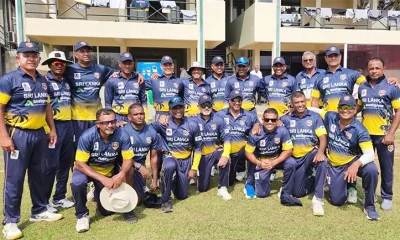
 Sports6 days ago
Sports6 days agoSri Lanka face Australia in Masters World Cup semi-final today
-

 Sports3 days ago
Sports3 days agoHow Sri Lanka fumbled their Champions Trophy spot
-

 News6 days ago
News6 days agoCourtroom shooting: Police admit serious security lapses
-
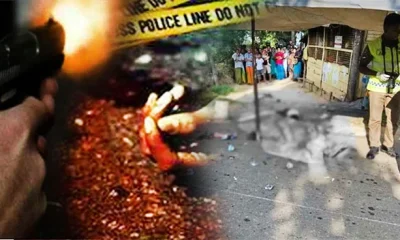
 News6 days ago
News6 days agoUnderworld figure ‘Middeniye Kajja’ and daughter shot dead in contract killing
-
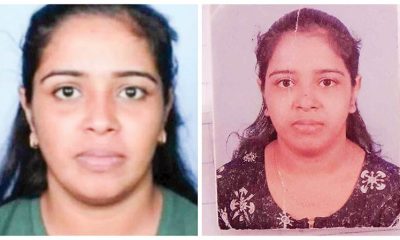
 News5 days ago
News5 days agoKiller made three overseas calls while fleeing
-

 Features3 days ago
Features3 days agoThe Murder of a Journalist
-

 News4 days ago
News4 days agoSC notices Power Minister and several others over FR petition alleging govt. set to incur loss exceeding Rs 3bn due to irregular tender











